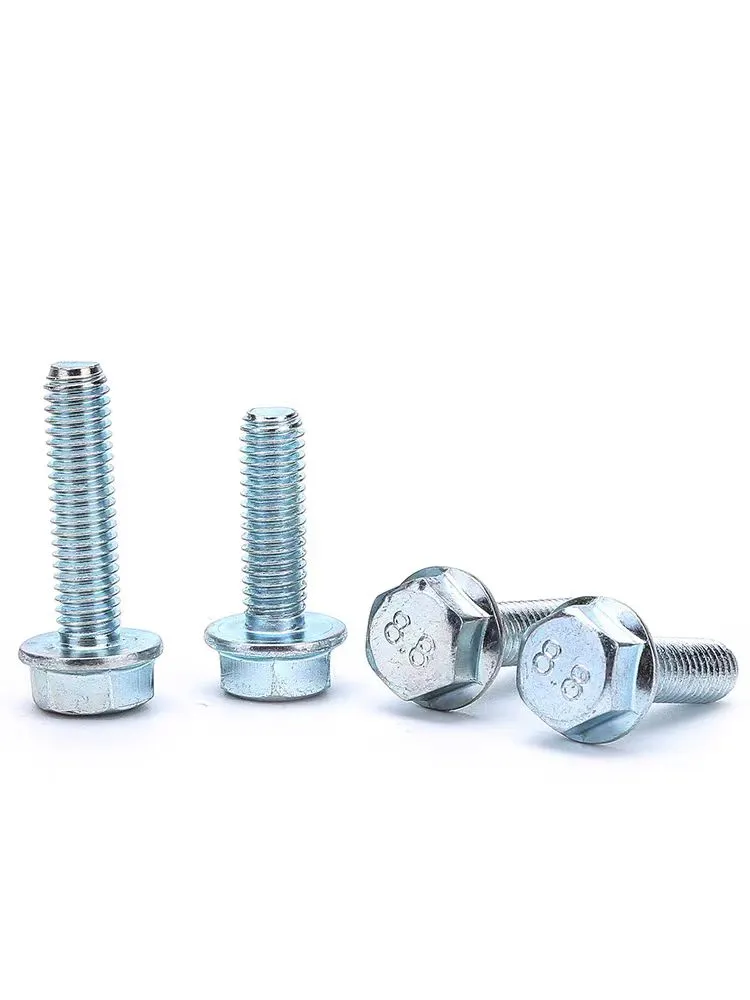

comparison between stud bolts and machine - a fastener
Nov . 15, 2024 00:18 Back to list
comparison between stud bolts and machine - a fastener
Comparison Between Stud Bolts and Machine Screws A Fastener Overview
Fasteners play a critical role in various industries, ensuring the integrity and stability of structures and machinery. Among the many types of fasteners available, stud bolts and machine screws are two widely used options. While both serve the purpose of joining materials, they have distinct characteristics, applications, and advantages. Understanding these differences can help engineers and designers make informed decisions when selecting the appropriate fastener for their specific needs.
Stud Bolts Structure and Purpose
Stud bolts are long, cylindrical rods with threads on both ends, often used in high-load applications. Typically, a nut is secured to each end, allowing for a strong hold between connected parts. Stud bolts are commonly found in industries such as construction, oil and gas, and heavy machinery, where they are often used to connect flanges in piping systems or to secure heavy equipment.
The primary advantage of stud bolts is their ability to handle high tensile loads. The continuous thread design allows for uniform load distribution, which minimizes the risk of failure. Additionally, stud bolts can be manufactured in various materials, including stainless steel, carbon steel, and alloyed steels, providing options for different environments, such as high-temperature or corrosive settings.
Machine Screws Versatility and Ease of Use
Machine screws, on the other hand, are shorter fasteners that can be used with or without a nut
. Unlike stud bolts, machine screws are typically used to fasten materials together without requiring a separate fastening element. They may also come with a variety of head types, such as flat, pan, or hex, allowing for versatility in application.comparison between stud bolts and machine - a fastener

One of the significant advantages of machine screws is their ease of installation and removal. They often require less torque and can be fastened more quickly than stud bolts, making them ideal for situations where components must be assembled and disassembled frequently. Machine screws are extensively used in electronics, automotive applications, and general assembly work, where rapid and efficient fastening is crucial.
Material Considerations
Both fasteners can be made from a variety of materials, tailored to their specific applications. Stud bolts may require more robust materials to withstand high loads and harsh environments, while machine screws may prioritize lightweight materials for their ease of handling and installation. Additionally, coatings like zinc plating or black oxide can enhance corrosion resistance for both types, further extending their lifespan in challenging circumstances.
Conclusion Choosing the Right Fastener
In conclusion, the choice between stud bolts and machine screws depends significantly on the application at hand. Stud bolts excel in applications requiring high tensile strength and load-bearing capabilities, making them the fastener of choice for heavy-duty and industrial uses. In contrast, machine screws are more suited for lighter applications where quick assembly and disassembly are necessary.
By considering factors such as load requirements, ease of installation, and environmental conditions, engineers and designers can select the right fastener to ensure safety, integrity, and functionality in their projects. Ultimately, the integration of the appropriate fastener contributes to the overall success of any assembly, emphasizing the importance of understanding the differences between these two essential fasteners.
Latest news
-
High-Strength Hot Dip Galvanized Bolts - LongZe | Corrosion Resistance, Custom Sizes
NewsAug.01,2025
-
Best Self Tapping Screws for Drywall - Fast & Secure Installation
NewsJul.31,2025
-
High-Strength Hot Dip Galvanized Bolts-Hebei Longze|Corrosion Resistance&Customization
NewsJul.31,2025
-
Hot Dip Galvanized Bolts-Hebei Longze Metal Products|Corrosion Resistance&High Strength
NewsJul.31,2025
-
Hot Dip Galvanized Bolts-About LongZe|High Strength, Corrosion Resistance
NewsJul.30,2025
-
High-Strength Hot Dip Galvanized Bolts - Hebei Longze | Corrosion Resistance, Customization
NewsJul.30,2025

